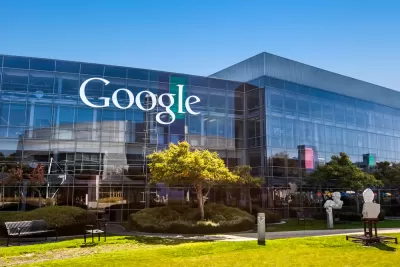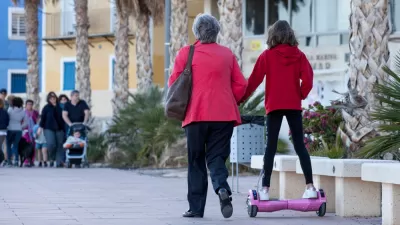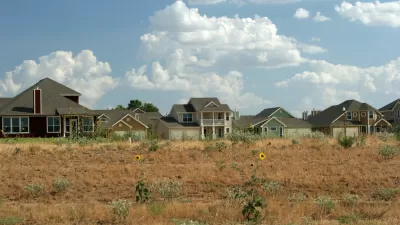Amazon isn't the only tech giant building a second headquarters. Google's new offices could change the way companies interact with cities for the better, if they want to.

As cities compete for Amazon's second headquarters and San Jose works on a deal for Google's second headquarters, Richard Florida argues that companies have reasons to be good neighbors to cities and that a forward-thinking company could do a lot to correct the mistakes of past headquarters. "As the city and company negotiate an agreement, community groups have already begun advocating for an arrangement that benefits not just Google and its high-paid tech workers but also the city and its residents," Florida writes for CityLab.
To Florida, the new headquarters creates an opportunity for Google to get right everything that Apple got wrong with their sprawling building and its acres of surface parking. "Rather than being a campus, per se, Google should build a fine-grained, mixed-use neighborhood, with walkways between buildings and numerous public spaces," Florida argues.
The company could have an even greater impact if, rather than merely trying to get their offices right, they also concerned themselves with employee housing. "Building a large number of new housing units in conjunction with the office construction would not only prevent a major shock to the housing market, it would also improve the experience of the new neighborhood, be a boon to businesses downtown, and help boost transit usage," Florida writes. In Silicon Valley where housing is difficult to permit and always in demand such a move would go a long way to ingratiate the city to Google and to help house their work force.
FULL STORY: How Google Can Help San Jose Become a Model of Inclusive Urbanism

Planetizen Federal Action Tracker
A weekly monitor of how Trump’s orders and actions are impacting planners and planning in America.

San Francisco's School District Spent $105M To Build Affordable Housing for Teachers — And That's Just the Beginning
SFUSD joins a growing list of school districts using their land holdings to address housing affordability challenges faced by their own employees.

The Tiny, Adorable $7,000 Car Turning Japan Onto EVs
The single seat Mibot charges from a regular plug as quickly as an iPad, and is about half the price of an average EV.

With Protected Lanes, 460% More People Commute by Bike
For those needing more ammo, more data proving what we already knew is here.

In More Metros Than You’d Think, Suburbs are Now More Expensive Than the City
If you're moving to the burbs to save on square footage, data shows you should think again.

The States Losing Rural Delivery Rooms at an Alarming Pace
In some states, as few as 9% of rural hospitals still deliver babies. As a result, rising pre-term births, no adequate pre-term care and "harrowing" close calls are a growing reality.
Urban Design for Planners 1: Software Tools
This six-course series explores essential urban design concepts using open source software and equips planners with the tools they need to participate fully in the urban design process.
Planning for Universal Design
Learn the tools for implementing Universal Design in planning regulations.
Smith Gee Studio
City of Charlotte
City of Camden Redevelopment Agency
City of Astoria
Transportation Research & Education Center (TREC) at Portland State University
US High Speed Rail Association
City of Camden Redevelopment Agency
Municipality of Princeton (NJ)




























